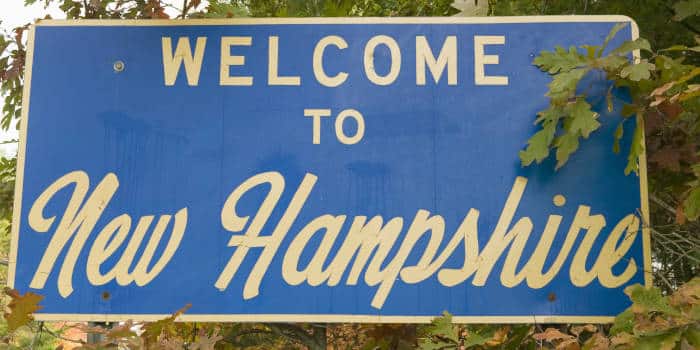In an effort to protect its youngest citizens, New Hampshire lawmakers have introduced House Bill 83 to raise the minimum age for sports gambling from 18 to 21. The proposed legislation aims to align the state with the majority of the nation and address concerns over youth gambling addiction.
New Hampshire Wants to Raise the Sports Gambling Age to 21

Key Takeaways:
- Lawmakers Propose Raising Gambling Age: House Bill 83 seeks to increase the minimum sports gambling age from 18 to 21 in New Hampshire.
- Aligning with National Standards: The state is currently one of only eight that allow sports betting at 18; the change would bring it in line with most others.
- Protecting Vulnerable Youths: The proposal addresses concerns about the risks of gambling addiction among those under 21.
- Economic Impact on DraftKings and State Revenue: The age increase could affect revenues for DraftKings, the state’s exclusive sportsbook provider, and reduce contributions to state funds.
- Regional Consistency Prevents Cross-Border Betting: Neighboring states also have a minimum gambling age of 21, limiting options for underage individuals.
New Legislation Aims to Raise Gambling Age
New Hampshire lawmakers are taking decisive action to protect young adults from the risks of gambling addiction. House Bill 83, introduced by House Members Sallie Fellows and Michael Cahill, along with Senators Ruth Ward and Suzanne Prentiss, seeks to raise the minimum age for sports gambling from 18 to 21.
“According to a new piece of proposed legislation, House Bill 83, the state’s youths are at risk of developing a litany of problems because of gambling,” the lawmakers stated, emphasizing the urgent need for reform.
An Outlier Among States
Currently, New Hampshire is an outlier in the United States’ gambling landscape. The state allows individuals as young as 18 to place wagers on sporting events, a policy shared by only seven other states. The majority of jurisdictions have established a firm age restriction of 21 or older for sports gambling.
By increasing the minimum age, New Hampshire would align itself with the prevailing national standard. “Protecting them early could potentially mean they will have a more healthy relationship to gambling for years to come,” proponents of the bill argue.
Protecting Vulnerable Youths
Research indicates that individuals under 21 are among the most vulnerable groups when it comes to gambling. Early exposure is linked to various issues later in life, including the development of gambling problems.
“U-21s are among the most vulnerable groups when it comes to gambling,” the legislation notes. The proposed age increase is seen as a proactive measure to safeguard young adults from potential harm.
Economic Implications for DraftKings and the State
While the social benefits are clear, the legislation could have economic repercussions. DraftKings, New Hampshire’s exclusive sportsbook provider enjoying a de facto monopoly, may experience a shrinkage in its pool of bettors. This reduction could lead to decreased revenues and, consequently, lower contributions to the state’s coffers.
“Sportsbooks will see their revenues shrink and so will the contributions they pay to the state coffers,” the article acknowledges. Despite potential short-term financial drawbacks, supporters believe the long-term societal benefits justify the change.
Regional Consistency and Cross-Border Betting
The proposed change also reflects a move toward regional consistency. Neighboring states such as Massachusetts, Maine, and Vermont have set their sports gambling age at 21. This uniformity prevents underage individuals from simply crossing state lines to place bets.
With youths unable to circumvent the law by gambling in nearby states, New Hampshire’s legislation reinforces a collective commitment to protecting young adults across the region.
Legislative Process and Implementation Timeline
House Bill 83 is scheduled to be introduced to the state legislature on Wednesday, January 8. Should the proposal progress smoothly, the legal gambling age for sports gambling in New Hampshire would change to 21 in 2026.
Lawmakers are optimistic about the bill’s prospects, citing growing awareness of the risks associated with underage gambling and a strong push for tougher restrictions to make the activity safer.
Balancing Social Responsibility and Economic Interests
The move to raise the sports betting age reflects a broader trend of prioritizing social responsibility over immediate economic gains. While the state may face a reduction in gambling revenues, the potential to foster healthier long-term relationships with gambling among its citizens is a compelling incentive.
As New Hampshire considers this significant policy shift, the state stands at the forefront of a national conversation about the appropriate age for gambling and the balance between economic interests and the well-being of its youth.











